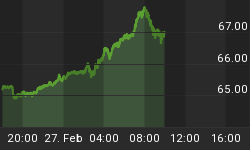Wells Fargo agreed late last week to pay a record $1-billion in penalties—the highest ever imposed—and it will end up being a lot more once consumers who were victim to what regulators have called the bank’s abusive policies start calling in refunds.
On Friday, Wells Fargo agreed to pay the $1 billion in fines slapped on it by the Consumer Financial Protection Bureau (CFPB) and the Office of the Comptroller of the Currency for abusive practices between 2005 and 2017 that regulators say cost home and auto loan customers millions in unwarranted fees.
But we’re only just getting started here, because the CFPB has also ordered Wells Fargo to make a plan for paying its customers back, along with a strategy for improving internal business practices.
This is, after all, a compliance issue, and regulators are teaching everyone a lesson—three of them actually:
#1 Lenders won’t be charging unwarranted rate-lock extension fees to their mortgage loan customers anymore
That lesson is being undertaken with the country’s largest originator of mortgage loans, and if we go back to the third quarter of 2013, we can see where one of the problems really started.
At that time, Wells Fargo launched a new policy for locking in interest rates on mortgage loans, charging fees to customers if it was deemed that a rate-lock extension was necessary due to some vague fault of their own. The fee typically came into play when the bank said borrowers didn’t get them documentation on time, or an appraisal for a new home purchase didn’t come through as expected, causing a deal-closing delay. If the fault was the banks, then no fee would be charged. Related: Farmers On Edge As Trade War Hits U.S. Grain Shipments
At least, that’s how it usually works, and that’s how it’s supposed to work.
But in the case of Wells Fargo, fees got a bit out of hand, according to regulators. As it turns out, bank employees didn’t really know all the rules here, and borrowers were being charged these fees arbitrarily—and extensively all the way up to March 2017.
#2 No more selling unnecessary auto loan insurance policies
Wells Fargo sold unneeded auto insurance to hundreds of thousands of customers, with as many as 800,000 affected. As a result of this policy, some customers saw their auto insurance rates climb as much as $600.
The bank has identified 570,000 people who qualify for the refund. That’s some hefty math.
According to media reports, some 25,000 consumers had their cars repossessed because of Wells Fargo’s random and inessential insurance policies, as cited by a member of the bank’s stakeholder advisory board.
#3 No more fake accounts, please
All the while, the bank was making employees come in to work on the weekends or stay after hours to meet quotas in this area by cross-selling products to customers.
Did it meet its quotes? Yes--and then some, but employees couldn’t pull it off without creating fake accounts under the pressure.
Related: Meet The Hedge Fund Billionaires Club
The last two years have seen Wells Fargo admit to opening millions of fake accounts in the process.
Some 5,300 employees were fired in the scandal, and the bank was fined $185 million by regulators. But before it fired those employees, it fired others who were trying to blow the whistle on these unethical practices.
All told, since early 2016, regulators have levied nearly $1.5 billion in fines and penalties against Wells Fargo, including for punishing whistleblowers and repossessing cars, illegally, belonging to military service members.
Then add to that all the refunds customers are going to get by calling a slew of dedicated hotlines based on whichever scandal affected them.
But it’s not just about fines: The biggest punishment here is the Fed’s unprecedented move to bar Wells Fargo from growing its assets above $2 trillion before it demonstrates clearly that it has learned its lesson by improving governance, risk management and board oversight.
As the Janet Yellen said before she vacated the top Federal Reserve spot: “We cannot tolerate pervasive and persistent misconduct at any bank. The consumers harmed by Wells Fargo expect that robust and comprehensive reforms will be put in place to make certain the abuses do not occur again.”
By David Craggen for Safehaven.com
More Top Reads From Safehaven.com:
















